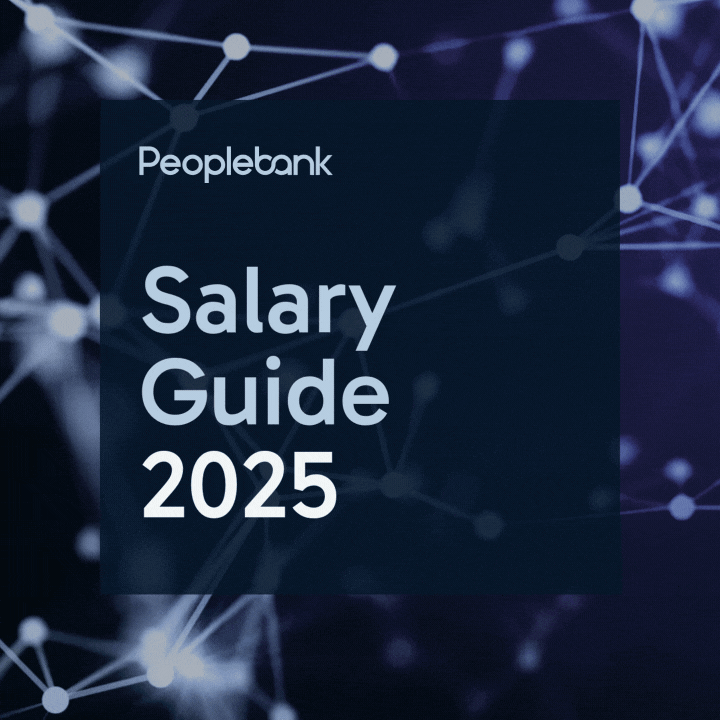The AI Revolution and its Winners and Losers in the Tech Sector
How is AI impacting the technology sector in 2025?
Artificial Intelligence (AI) is no longer just a buzzword; it’s the engine driving some of the most profound changes in the history of technology. Over the past decade, AI has moved from theory to practice; reshaping industries, business models, and everyday working life. From chatbots answering customer queries to complex algorithms managing global supply chains, AI’s reach is extensive.
Yet, with every technological leap, there are winners and losers. Some jobs are transformed, others limited, and entirely new ones spring into existence. For employers, the challenge is to understand these changes and build teams that keep pace. For tech professionals, the opportunity lies in learning to work alongside AI, leveraging its power to accelerate careers rather than hinder them.
This article explores how AI is impacting a broad spectrum of tech domains: digital transformation, data and analytics, cybersecurity, project services, development and testing, cloud and infrastructure, architecture, enterprise platforms (CRM, SAP, ERP), and executive IT. We’ll highlight the new roles emerging due to AI’s rise, and show how Peoplebank’s expertise can help you navigate, and thrive, in this dynamic environment.
Executive IT
For executive IT leaders, AI is now a strategic imperative. Strategic leadership in AI-driven digital transformation requires ethical governance, cross-functional synergy, and a sustainable approach to innovation [9]. Hirers are looking for visionary leaders who understand business, technology, and ethics, and can drive organisational change through responsible AI adoption. The ability to manage cross-functional teams and set long-term digital strategies is paramount.
Pros: Enhanced decision-making, ability to unlock new business models, improved organisational competitiveness.
Cons: Accountability for AI ethics and compliance, risk of strategic missteps if AI is poorly understood or implemented, need for continuous learning.
Peoplebank supports executive searches and strategic IT hiring to ensure organisations have the leaders needed to innovate with AI.
Digital Transformation
AI has become the backbone of digital transformation, driving business agility and innovation. Process mining powered by AI is increasingly used to identify bottlenecks and enable automation, with organisations reporting incremental annual growth and improved operational efficiency [1]. For Hiring Managers, this means seeking candidates who can lead change, integrate intelligent automation into legacy systems, and drive adoption across departments. Skills like process mining, workflow automation, and change management are highly sought after.
Pros: Increased speed, reduced errors, enhanced customer satisfaction.
Cons: Initial investment in AI tools, workforce up-skilling, risk of job displacement especially in repetitive roles.
For organisations seeking
digitaltransformation, Peoplebank offers access to candidates skilled in AI and automation, key for future-proofing your team.
Data and AI
Data is the “fuel” for AI, and the tech industry’s appetite for data scientists, engineers, and analysts continues to surge. AI’s effectiveness depends on robust data pipelines and data quality, and the demand for skilled professionals in data engineering and analytics is only growing [2].
Pros: Enhanced forecasting, better business intelligence, improved decision-making, greater competitive advantage.
Cons: Data privacy concerns, algorithmic bias, need for robust governance and compliance.
For tech professionals, investing in AI and big data skills is one of the most effective ways to future-proof their careers and become indispensable contributors to digital transformation initiatives.
Cybersecurity
AI is revolutionising cybersecurity by automating threat detection and response. Modern cybersecurity increasingly relies on supervised learning, anomaly detection, and deep learning to identify threats at machine speed and scale [3]. Hirers are searching for security specialists who can work with AI-powered tools, interpret complex patterns, and stay ahead of adversarial AI tactics.
Pros: Faster response to threats, improved risk management, ability to defend against zero-day exploits.
Cons: Rise of adversarial AI (malicious use of AI by attackers), need for continuous up-skilling, ethical and privacy challenges in monitoring.
Cyber talent
is in high demand, and Peoplebank connects organisations with specialists ready to tackle next-gen security challenges.
Development and Testing
AI is changing the way software is developed and tested. AI-powered tools now automate code generation, bug detection, and test case creation, leading to greater productivity and code quality [5]. Hiring trends now favour developers who can work with AI-assisted coding tools, automate testing, and adapt to new workflows. The ability to combine creative problem-solving with technical prowess is key, as is a willingness to learn new platforms and languages.
Pros: Increased productivity, faster release cycles, improved code quality, reduced manual testing.
Cons: Risk of over-reliance on automation, need for human oversight, shifting skill requirements, potential for new types of bugs introduced by AI-driven tools.
Developers who learn to collaborate with AI tools are more valuable than ever, a trend reflected in Peoplebank’s tech talent pool.
Cloud and Infrastructure
Cloud computing and AI now go hand-in-hand, with AI-driven infrastructure management enabling resource optimisation, predictive maintenance, and automated scaling. AI-powered predictive maintenance allows organisations to proactively manage cloud environments and identify issues before they cause downtime [6]. Employers seek candidates with hybrid skills, expertise in cloud platforms and the ability to integrate AI-driven solutions. Understanding automation frameworks, security implications, and cost management are essential.
Pros: Cost savings, reduced downtime, scalable solutions, smarter resource allocation.
Cons: Increased complexity, need for hybrid skills in cloud and AI, risk of vendor lock-in, security risks if not managed well.
Peoplebank’s network includes experts in cloud-AI integration, supporting business growth and resilience.
Architecture
System architecture is evolving to support AI workloads, demanding scalable, secure, and ethical solutions. AI is being used to design microservices architectures that are modular, scalable, and resilient [7]. Hiring managers look for architects experienced in distributed systems, microservices, and designing for large-scale AI applications. Skills in balancing technical, ethical, and business requirements are prized.
Pros: Flexible, future-proof systems, ability to handle large AI-driven applications, easier updates and scaling.
Cons: Greater system complexity, need for specialised architectural expertise, higher maintenance costs.
CRM, SAP, ERP
Enterprise platforms like CRM, SAP, and ERP are being transformed by AI automation and analytics. The latest innovations in platforms such as SAP S/4HANA Cloud illustrate how generative AI is driving enterprise automation and intelligence [8]. Companies now hire specialists who can integrate AI into existing platforms, optimise workflows, and drive adoption of advanced analytics. Cross-functional collaboration and change management are increasingly important hiring criteria.
Pros: Improved customer engagement, operational efficiency, data-driven strategy, reduced downtime in core business processes.
Cons: Integration challenges, need for ongoing training, risk of data silos, managing change within large organisations.
Tech specialists in this space can expand their roles into AI integration, a key hiring focus for Peoplebank clients.
Emerging Jobs in the Age of AI
As roles evolve or become automated, entirely new jobs are emerging:
- AI Ethicist: Ensures responsible AI development and deployment.
- Machine Learning Operations (MLOps) Engineer: Bridges the gap between data science and production, managing AI models in live environments.
- Prompt Engineer: Specialises in optimising inputs for generative AI models.
- AI Product Manager: Guides development of AI-driven products and services.
- Cybersecurity Analyst (AI focus): Designs defences against adversarial AI.
- AI Trainer/Data Annotator: Prepares data and feedback for AI model improvement.
- AI Integration Specialist: Facilitates seamless adoption of AI into legacy platforms.
Employers must keep pace by hiring for these new skill sets. Peoplebank’s expertise in tech hiring helps businesses identify and onboard talent for emerging roles, discover more here.
The AI revolution is not simply about jobs disappearing; it’s about transformation and opportunity. While automation may change the nature of work, it also creates new roles for those who upskill and adapt. Tech specialists who embrace AI will find their careers accelerated, not threatened. Employers, too, need partners who understand the evolving landscape and can guide them through change.
At Peoplebank, we’re committed to supporting our community through these shifts. Whether you’re searching for your next tech role or looking to add AI-ready talent to your team, our services connect you with the expertise needed to succeed:
AI is not a replacement, it’s a tool for those willing to learn, innovate, and lead. The winners of the AI revolution will be those who use it wisely.
References
1. Suljid, Vahid. “Strategic Leadership in AI-Driven Digital Transformation: Ethical Governance and Cross-Functional Synergy.” Journal of Applied Business Research (JABR). Accessed September 9, 2025. https://jabr.sbs.edu/article/view/48.
2. IBM Institute for Business Value. “Automate to Elevate: The Value of AI-Powered Process Mining.” IBM. Accessed September 9, 2025. https://www.ibm.com/thought-leadership/institute-business-value/en-us/report/automate-business-processes.
3. Big Data Framework. “The Role of Artificial Intelligence (AI) in Big Data Analytics.” Big Data Framework. Accessed September 9, 2025. https://www.bigdataframework.org/knowledge/the-role-of-artificial-intelligence-ai-in-big-data-analytics/.
4. Journal of Artificial Intelligence, Machine Learning and Data Science. “The State of AI-Driven Cybersecurity: Trends, Challenges, and Opportunities.” Accessed September 9, 2025. https://urfjournals.org/open-access/the-state-of-ai-driven-cybersecurity-trends-challenges-and-opportunities.pdf.
5. Journal of Artificial Intelligence, Machine Learning and Data Science. “AI in Project Management: Enhancing Efficiency, Decision-Making, and Risk Management.” Accessed September 9, 2025. https://urfjournals.org/open-access/ai-in-project-management-enhancing-efficiency-decision-making-and-riskrnmanagement.pdf.
6. IBM. “AI in Software Development.” IBM. Accessed September 9, 2025. https://www.ibm.com/think/topics/ai-in-software-development.
7. International Journal for Innovative Research in Technology (IJIRT). “Predictive Maintenance in Cloud Services: Analyzing Infrastructure with AI.” Accessed September 9, 2025. https://ijirt.org/publishedpaper/IJIRT169033_PAPER.pdf.
8. MDPI. “Designing Microservices Using AI: A Systematic Literature Review.” MDPI. Accessed September 9, 2025. https://www.mdpi.com/2674-113X/4/1/6.
9. SAP Community. “Exploring AI and Next-Gen Cloud ERP Innovations in SAP S/4HANA Cloud.” SAP Community. Accessed September 9, 2025.
https://community.sap.com/t5/enterprise-resource-planning-blog-posts-by-sap/exploring-ai-and-next-gen-cloud-erp-innovations-in-sap-s-4hana-cloud-public/ba-p/14162730.






















